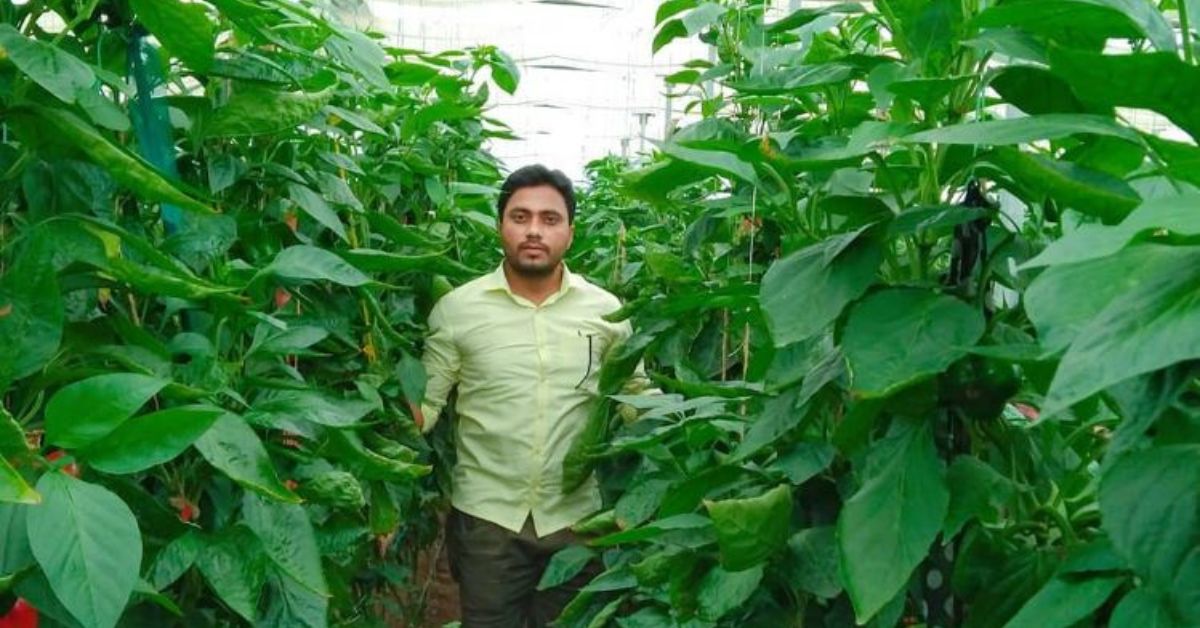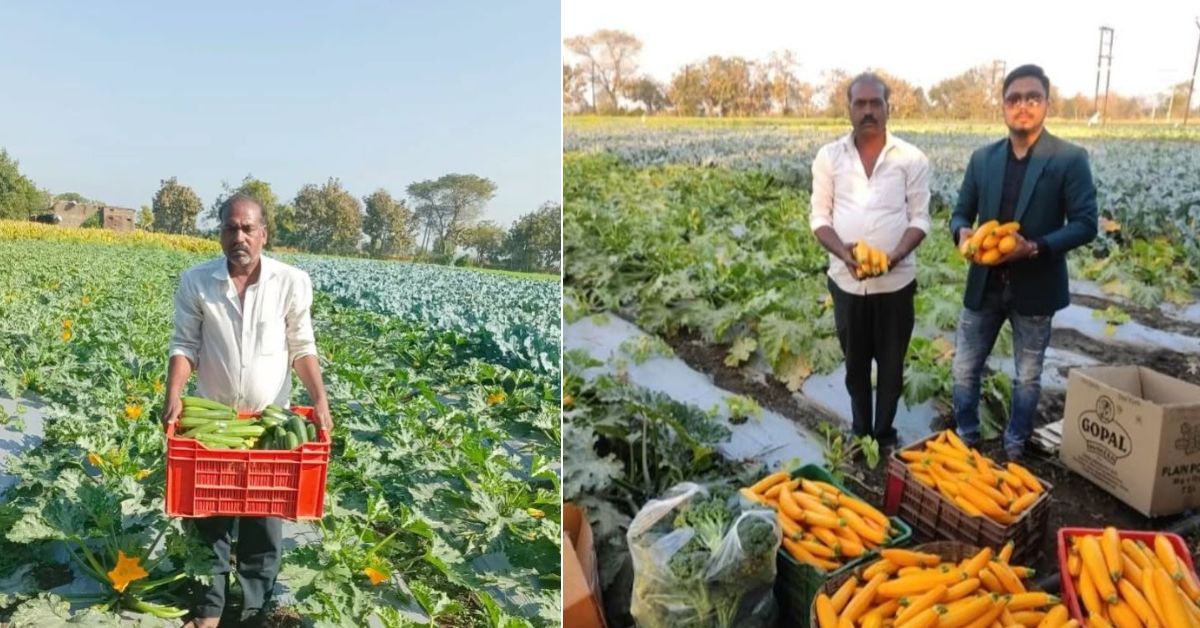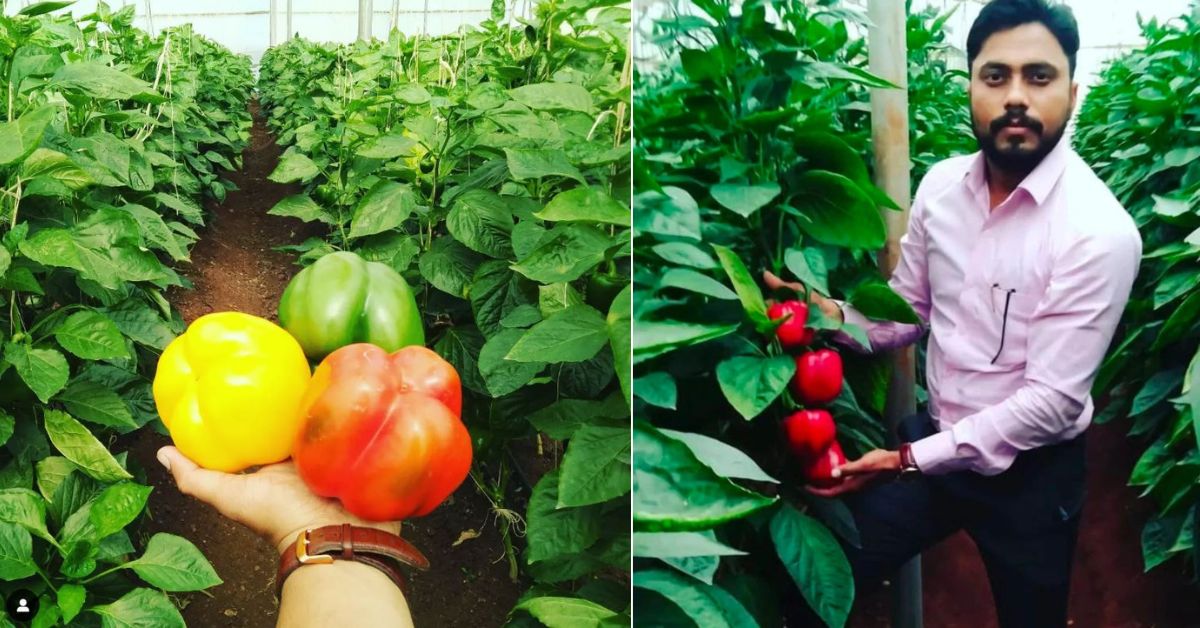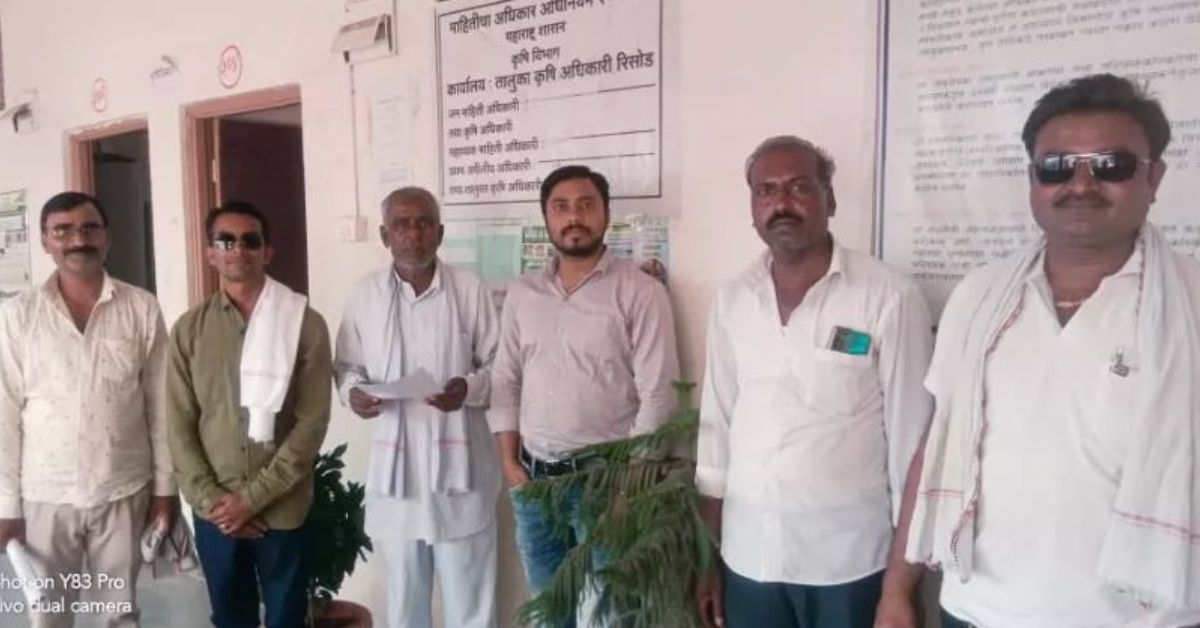In a small village nestled in the heart of Maharashtra’s Vidarbha region, Suhas Bali embarked on a journey that many dream of but few dare to pursue — leaving behind a stable corporate career to follow his true calling in agriculture.
After completing an MBA in 2014, Suhas stepped into the corporate world and spent four years in an office setting. However, it didn’t bring him the satisfaction he had hoped for. He yearned for something more substantial, more connected to nature, and closer to home.
This desire eventually led him back to his roots in Vidarbha — a region traditionally known for kapaas (cotton) and soybean farming.
Despite having no formal background in agriculture, Suhas was undeterred. He saw potential in his family’s 30-acre land in the Washim district.
Recognising the growing demand for exotic vegetables in urban markets, he made the bold decision to venture into exotic farming. It was not a choice made lightly. It was a bold step into unfamiliar territory — one that required resilience and a willingness to learn through trial and error.

“I realised that what you cannot achieve on a 20-acre farm with traditional crops, you can do with just two acres if you choose the right crops and farming techniques,” Suhas points out.
Starting with coloured red and yellow capsicum, Suhas soon discovered the financial rewards of polyhouse farming. The 32-year-old went on to cultivate a paradise decked with exotic vegetables. Green broccoli, Chinese cabbages, capsicums in vibrant colours, cherry tomatoes, and iceberg lettuce colour his land, filling the air with their fresh aroma.
As he expanded his repertoire to include broccoli, red cabbage, and zucchini through open-field farming, the economic benefits became even clearer. Exotic vegetable farming was not only viable but highly profitable.

One acre of red cabbage, for instance, could yield 16,000 plants, producing around 8,000 kilograms and earning Rs 80-100 per kilogram, Suhas explains. In a matter of three months, his revenue soared to Rs 8 lakh per acre — a stark contrast to the Rs 25,000 a farmer might earn over six months from traditional soybean cultivation.
However, Suhas’s journey was not without its challenges. “Exotic farming requires good irrigation and water management,” he emphasises. Using high-tech farming equipment, he implemented drip irrigation, allowing him to water his fields efficiently and sustainably. Flood irrigation wasn’t an option, given its tendency to waste water — a resource as precious as gold in the farming world.
From farming success to farmer empowerment
Suhas’s efforts didn’t stop at cultivation. His venture into exotic vegetable farming began attracting attention both within and outside his community. He wasn’t just improving his own farm — he was helping and uplifting others, too.
“Currently, I am focusing on training more farmers and helping them boost their income,” Suhas says. His goal was to reach out to small and marginal farmers to show them that they, too, could earn substantial incomes from their modest landholdings.

And so, in 2021, he created a Farmer Producer Organisation (FPO), ‘Rudrayani Agro India’, enabling collective bargaining and better market access for local produce. His collaboration with companies like Reliance Fresh further ensured that local produce reached lucrative markets in Mumbai, Pune, and Bengaluru.
Through social media and community engagement, Suhas continues to motivate others. “When I first started, people would tease me. They questioned why an MBA graduate would end up selling vegetables. But I believed in what I was doing,” Suhas recalls with a smile.
Suhas routinely meets with produce collectors and agriculture officers across Maharashtra to expand his network. With their help, over 30,000 farmers are now associated with Suhas. “The officers help me connect with farmer groups in their districts with whom I share insights on exotic farming practices,” he adds.
One such farmer is Swapnil Kokare, who manages a four-acre farm. He now dedicates two acres to sugarcane and the other two to zucchini cultivation. He also grows ladyfingers, brinjals, and exotic red cabbage year-round.

“While we have traditionally grown sugarcane, I have now incorporated vegetable cultivation as well. Sugarcane takes about 1.5 years to mature and earns a maximum of Rs 3 lakh, whereas I can earn the same amount in just two months with exotic varieties. Green zucchini is especially profitable as it’s ready for harvest in two months,” Swapnil explains.
He adds, “I used to grow ladyfingers and other vegetables on a small scale, but exotic vegetables have a lucrative market with little competition. Suhas ji taught me how to cultivate these crops, and it was my first experience growing and even tasting them. Suhas ji also helps me with marketing the produce in the Mumbai market and keeps us updated daily about market rates.”
More than what he earns from his own farm, Suhas says he finds greater satisfaction in witnessing the transformative ripple effect on the lives of farmers who once doubted they could earn lakhs from just one or two acres. “Venturing into exotic farming has increased their annual incomes by four times. I’ve achieved more than I ever anticipated. My mission remains to dismantle the notion that small landholders cannot thrive,” he says.
As he stands proudly among his colourful crops, he reflects on the path he chose and the impact he has made since. “Whether it’s celery or red cabbage, every seed sown in these fields tells a story of growth and hope,” he says. His vision is set on fostering a thriving, sustainable future for farmers across his beloved Maharashtra.
Edited by Arunava Banerjee and Khushi Arora; All images courtesy Suhas Bali.
No comments:
Post a Comment